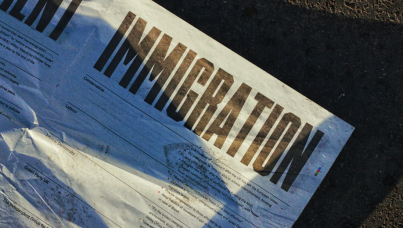General Election 2001 : Is Labour's Lead Soft?
The Conservatives are continuing to say that, despite what the polls say, they can still win this election. There are, they argue, still enough undecided electors whose votes they can swing; Labour's vote is big but soft.
How soft is the Labour vote? Only 60% of Labour's supporters say (in our poll last week for The Times) that they are certain to vote; but then only 64% of Tories say the same, a slight but not very substantial advantage. Only 25% of Labour's supporters say they support the party "very strongly", and a further 51% that they support it "fairly strongly"; but the Conservative figures are worse, 23% and 46% respectively. Of Labour's supporters, 25% say that they may yet change their mind which party to vote for; but 31% of the Tories may change their minds; furthermore, of those current Labour supporters who might change their minds, only a quarter say that the Tories are the party they might switch to. Similarly, only 29% of Lib Dem waverers say the Conservatives are their second choice party, while 39% might consider switching to Labour.
Now suppose everything were to work entirely in the Tories' favour between now and election day -- they keep every single supporter that they already have, and every 'may change mind' who says that he or she might switch to the Tories does so, whereas Labour loses every single waverer. That would still leave Labour on 42%, the Tories on 35% and the Lib Dems on 16% -- similar to the 1992 result in reverse, except that whereas a seven-point lead gave John Major a majority of only 21, uniform swing would suggest that at the moment a similar lead for Labour would be worth a majority of 127.
Let's go further. Suppose that Mr Hague so enthuses his troops that not only all those who are currently certain to vote, but also those who say that they are very likely to vote, get to the polling station, whereas for Labour only the certain to votes turn out. And we still assume that everybody who says they might switch to the Tories or away from Labour does so. Of course, the turnout assumptions will cut the number of switchers, since those who admit they may change their minds are much less likely to vote than those who have definitely decided. But here, too, we can load the dice in Mr Hague's favour, by again assuming that those "very likely to vote" who switch to the Tories do indeed vote, while those who switch to the other parties don't bother unless they are already certain to vote.
At last -- we get the Tories in the lead ... just. They and Labour would both stand on 41% with the Liberal Democrats on 11%, but with Mr Hague a fingernail in front. But even that of course, given the current bias in the electoral system, would not be enough for the Tories to be the biggest party in parliament; indeed, on uniform swing it would still leave Labour with an overall majority of 20 or more.
Of course, the Tories can win -- nothing in the future is impossible. But the most optimistic assumptions I can make on the present figures still can't put William Hague in front. They still have to win over voters who at the moment won't even admit the possibility of voting Tory, or even of not turning out to vote against them. It will have to be quite an unprecedented fortnight.



